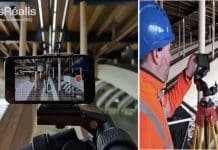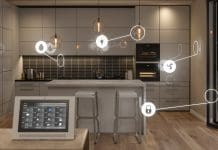Barnet Council found liable for the repeated flooding of a family home in the first-ever entirely remote Technology and Construction Court trial in English legal history
Conducted on video-conferencing platform Zoom, the construction case could help transform how future court cases are conducted, even after the conclusion of the Covid-19 pandemic.
The settlement resulted in liability for Barnet Council of over £3m following the repeated flooding of a family home.
The case was brought by the construction law specialist Barton Legal, alongside Peters & Peters and two members of 39 Essex Chambers.
Having taken four years to reach trial, the Honourable Mrs Justice Jefford, DBE, rejected the defendant’s application to adjourn the case, in favour of Zoom.
With evidence supplied to the court virtually, and with Paul Darling OBE QC’s cross examination conducted by video, the cyber-secure video stream was open for public viewing, with up to 40 people, including journalists and members of the public, watching at a time.
Where Skype for Business has previously been used, this is not only the first time a complex construction case has been conducted entirely remotely, but is also amongst the first where Zoom has been used for a trial of this nature.
‘Biggest shift in English courtroom history’
Bill Barton, director of Barton Legal, said: “The significance of the case is huge. Technology is powering what could be one of the biggest shifts in English courtroom history.
“This is about more than how the trial was conducted: empowering people around the world to view cyber-secure, open trials, cuts to the very core of the principle that justice should be seen to be done. The law is amongst the world’s oldest professions; of course it is time it embraced change.
“Every aspect of the case went off without a hitch. Screen sharing allowed evidence to be viewed easily; the defendant saw its main witness repeatedly challenged over video; and even the intimacy of the traditional courtroom remained. Hopefully, even after the lockdown is lifted, we return to a new, digital normal.”
Paul Darling OBE QC, barrister at 39 Essex Chambers, added: “Amongst the principal concerns when it comes to remote trials is the loss of visual cues. Any barrister will tell you that body language is invaluable in cross examination.
“What the trial has proved beyond reasonable doubt, however, is that none of the intimacy of the physical courtroom is in fact lost with a remote trial. Rather, video sharing can in fact heighten our ability to dissect testimony, whilst opening up proceedings to the public.”
















